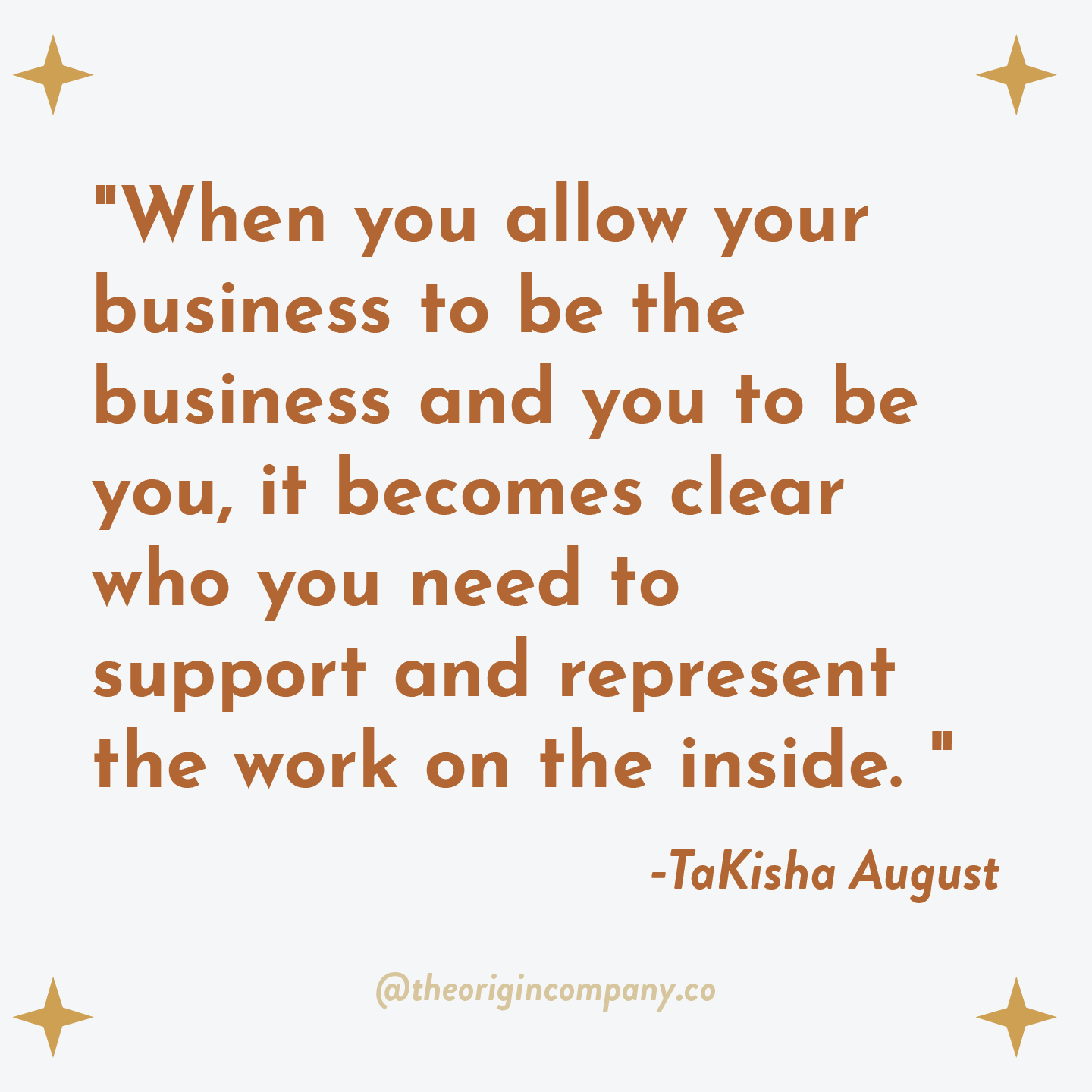We do it a lot.
The villainizing of Corporate America has become a norm among us entrepreneurial folk and even seen by some as a failure or last resort option when working for oneself doesn’t work out.
However, as someone who spent the better part of 15 years working in marketing and sales for some of the most recognizable companies across industries ranging from publishing to tech to beauty and so on, I invite you to consider a few things from Corporate America that you might want to consider implementing in your own business to avoid the toxic work habits you may not see coming.
And it doesn’t have to mean immediate burnout or the selling of your soul.
But before I get into the shortlist of business keepers, consider for a moment your own relationship with what you imagine “corporate” means. Because let’s be honest, if all goes to plan your business may be destined to grow and scale to the level of at least some of the smallest corporate entities; and energetically shunning the notion of all things corporate may be creating a block for you reaching the level of success you truly desire.
Now let’s get into it, shall we?
- Develop a solid mission and values. Keep them close. Make them known.
One of the easiest ways to truly take yourself seriously is to have this foundational element of your business intact.
Its “personality.”
Which in this case are the values and mission statement that drive what you do, who you do it for, the kinds of people inside your company that do the thing, and who your company is as an entity all its own.
When we look at medium to large corporations there isn’t a lot of enmeshment between the leader, founder, or CEO and the company itself. And, I get it, when you’re a solopreneur or run a small business it can feel second nature to see your business as an extension of you. We hear it often (and maybe you’ve said it yourself) that a business is referred to as our “baby” or even our “life’s work.”
So. Much. Pressure.
Those classifications alone can create the kind of fear and apprehension that makes expansion, growth, or the necessary pivot impossible.
Think about it: If your business is your baby, you’d just as soon do all the work yourself instead of trusting other very capable hands to hold space doing what they do best for your business. It can prick the ego to imagine being “replaced” in your business by someone who does something better than you, but unless you want to do the same thing forever, that may be exactly what you need to consider.
But when you allow your business to be the business and you to be you, it becomes clear who you need to support and represent the work on the inside. And when those people (your team of amazing professionals) know what they are working to help build and who the deliverables you all create are serving, everybody wins.

- Develop onboarding with understood parameters.
Once upon a time much earlier in my career, a wise CEO once told me that the employees are the company’s very first and most valuable customers. And it makes sense.
When someone signs on to work inside of your business their initial experiences will help to shape the level of loyalty they have to your brand and what they say about the company for years to come.
Regardless of the nature of work I was hired to perform there was always some level of introduction to the company, the culture inside, and the preferred style expected for deliverables. As a copywriter and marketer, this might have looked like an intro to the voice of the customer, brand guidelines, style guides, and even an organizational chart that shows who the stakeholders are, who to go to with questions, and what approvals to seek.
I’ve even experienced onboarding with freelance or consulting clients that looked anywhere from a sitdown with project leads, access to an onboarding hub with necessary login details and industry acronym explanations, or even a full manual with information to lean on that could minimize my dependency on others or wasted time waiting to hear back from someone about some company detail that could have been easily explained from the beginning.
There is a reason why large organizations with low employee turnover invest in onboarding processes. So determine what experience you want your team to have when joining your organization and how to make that happen in the most do less yet impactful way possible.
- Seek out and cultivate intentional mentorship and community.
You don’t know what you don’t know. And recognizing this early on and seeking out circles or a mentor you can mirror or lean on for guidance is the key to success for many leaders. Plus, the larger the team you amass over time, recognizing the need for internal mentorship or a “buddy” system (but for grownups) honors the humanity of your people and your dedication to truly leading and cultivating other leaders instead of managing a bunch of people who feel replaceable and disconnected to their role in helping the organization reach its mission and goals. (P.S. You don’t want that.)
In addition, realizing the need for connection and mentorship inside of your organization will help minimize turnover and burnout in seasons of heavy output or after intense launches. And when you, as the leader, have more seasoned mentors of your own you can receive the kind of guidance that helps you avoid the high cost of making leadership decisions that repel employees and consultants who are at the top of their game.
I remember the impact of my own mentor years ago. She helped me to feel safe enough to advocate for my opinions and visions for some of the most high-stakes deals of my career, and in taking her advice and sharing my own wisdom with the team we went on to win a 10-figure project deal for our agency.
Without her guidance and shared experiences, I am sure I would not have felt that my insight could be valuable as one of the newer members of the team. In the end, the agency won big, the team felt proud and ignited, and I won my place as a respected voice in future projects.
Mentorship for the win!
But sometimes finding a mentor that you vibe with and respect can take time.
One of the joys of this stage of the digital age is access to specific and focused communities whose members span the entire globe. It’s really amazing when you think about it.
There are communities specific to industry, lifestyle, and any demographic that you can think of both in-person and online. However, keep in mind that diversity is the spice of life and can make for the kind of environment that turns micro-managers into respected leaders.
If iron sharpens iron, the quality of the people you surround yourself with can catapult your vision, your career, and your general expansion as the adult your younger self would have been proud to become.
Know, too, that the name of the game is not to be the smartest person in the room. Position yourself in spaces where you can observe and listen more than you speak; and contribute with confidence and generosity when you are in a position to help others in your mentorship and community relationships.
Oh, and if you’re in search of a diverse community of intelligent and open hearted leaders, I know of one that continues to amaze me with the level of growth, support and expansion inside.
While I’m sure there are a number of valuable habits that should be held close that come from Corporate America, these three are arguably the most foundational and accessible habits that you can access right away.
Are there any habits you find to be valuable that you’ve gleaned from other work environments or industries? We’d love to hear about them in the comments below. Sharing is caring so let’s keep this conversation going.
 TAKISHA AUGUST, Origin Community Manager/Head Empress
TAKISHA AUGUST, Origin Community Manager/Head Empress
TaKisha is the holder of all spaces for The Origin Company. On calls, in the community, and sometimes 1-on-1 in the inbox helping members of our community feel seen, heard, and more confident about how to use the tools inside of the Origin membership.






3 comments